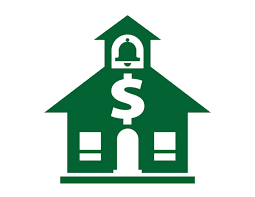by Seann Dikkers, Ph.D.
Executive Director, Minnesota Association of Christian Home Educators (MACHE)
An article entitled “Home-schooled kids costing local boards $”recently posted (Oct 20, 2020).[i] The piece was sent to me by a friend as another example of a curious position that some school districts take. The author, Jenna Cocullo, sums it up well, “Without the students, home-schooled kids could cost the board up to $2.5 million in lost revenue.” This is not an uncommon sentiment.

Cocullo goes on to list the amount of per student funding ($12,525) for the district. She quotes concerned school board members that are having to adjust a budget that overestimated public choice for the school system. She treats kids as a “revenue” stream, but ignores the role of schools as public servants. She expands that this is a larger trend in the province – without ever asking basic inquiry questions like, “Why are these students leaving government run schools?” or “What could be so special about homeschooling that families sacrifice income and time to do it themselves?” (Both would be fascinating journalistic pieces!) Essentially, an increase in homeschooling is assumed to be a “loss” for school boards. Worse, in this case the language actually blames the children as though they are the antagonists.
Now, I’ve seen enough budget meetings and school board members to understand – this is a worldview issue. Some look at budgets, and some see children. Budget 101: Boards have to plan their budgets with smaller numbers if they have fewer students. Simple, if the state is paying per student, then they should have adequate funding for their attending students and plan accordingly. This is funding to support service, not revenue or profit. The story here is not that there is an army of hurtful kids out there plotting against our schools, but that the school board is passing blame onto little kids – after they plan budgets poorly and are looking for a scapegoat.
No child, no parent, and no family is to blame for educational offerings, government or private. Public schools provide the best service they are capable of, no doubt, and families can choose if they want to use that service. Families are not required to make use of a public service. However, they still pay taxes. So when taxes are constant, and public expenses go down, we should really write articles that say, “Thank you homeschoolers, you’ve saved millions!” When parents decide to educate their own children, (rather than utilize a public service), they are in fact saving the taxpayers money by not spending it. Unless those kids represent, to the writer, entitled local government money.
A number of studies have looked at broader public savings from homeschooling and private schooling. Where a local school board has less students, a 2013 study showed this as roughly a $100-million-dollar savings in Iowa for example[ii]; with similar numbers in Nevada[iii] and Mississippi.[iv] The 20,000 to 40,000 homeschoolers in Ontario would save taxpayers at least $250,500,000 dollars (using Cocullo’s numbers) – and those same families ask for nothing in return.
Another consideration often overlooked, is that governments already have come to depend on homeschooling for their budgets. If these students all flooded back into the public systems, it would overwhelm state or provincial budgets that rely on homeschooling to fund other services. Ontario does not have a spare $250 million without cutting other services. Legitimate public servants actually see it as it is, a saving of millions and millions of public dollars, not a “cost” to some local school board. One would expect the state, not local families, to be advocating for more homeschooling not less.
Yet, locally, there are some that actually believe that they own other people’s children. That these little children exist to fund their budgets and fuel their agendas. I believe they do not. Children do not belong to the state, the school board, reporters, or to a local school – even when they do attend government-run schools. The school boards serve all area families, not the other way around. Anyone that starts to blame parents for raising their own children really doesn’t have the kids’ interests at heart. Those school boards should budget responsibly for the kids they serve. Children do not have dollar signs printed on their heads.
Endnotes:
[i] Cocullo, J. (2020). Home-schooled kids costing local boards $. The Chatham Voice.com. Oct 20, 2020. Online: https://chathamvoice.com/2020/10/20/home-schooled-kids-costing-local-boards/
[ii] Dotterweich, D. P., McKinney, M. M. & Michael, L. A. M. (2013) Economic Impact of Home and Private Schooling on the Public Education System: Iowa as a Case Study. July 10, 2013. 29(3). Retrieved online: https://www.nheri.org/home-school-researcher-economic-impact-of-home-and-private-schooling-on-the-public-education-system-iowa-as-a-case-study/
[iii] Wenders, J.T., & Clements, A.D. (2007). An analysis of the economic impact of home and private schooling in Nevada. Home School Researcher, 17(2), 13-35. Retrieved online: https://www.nheri.org/home-school-researcher-an-analysis-of-the-economic-impact-of-home-and-private-schooling-in-nevada/
[iv] Kittredge, B. (2017). Private School, Homeschool Families Save Taxpayers Nearly $600 Million. Empower Mississippi. September 226, 2017. Retrieved Online: https://empowerms.org/private-school-homeschool-families-save-taxpayers-nearly-600-million/#:~:text=Using%20funding%20that%20comes%20from,homeschooling%20and%20private%20school%20students.&text=The%20state%20spent%20%245%2C200%20per,actual%20amount%20varies%20by%20district
